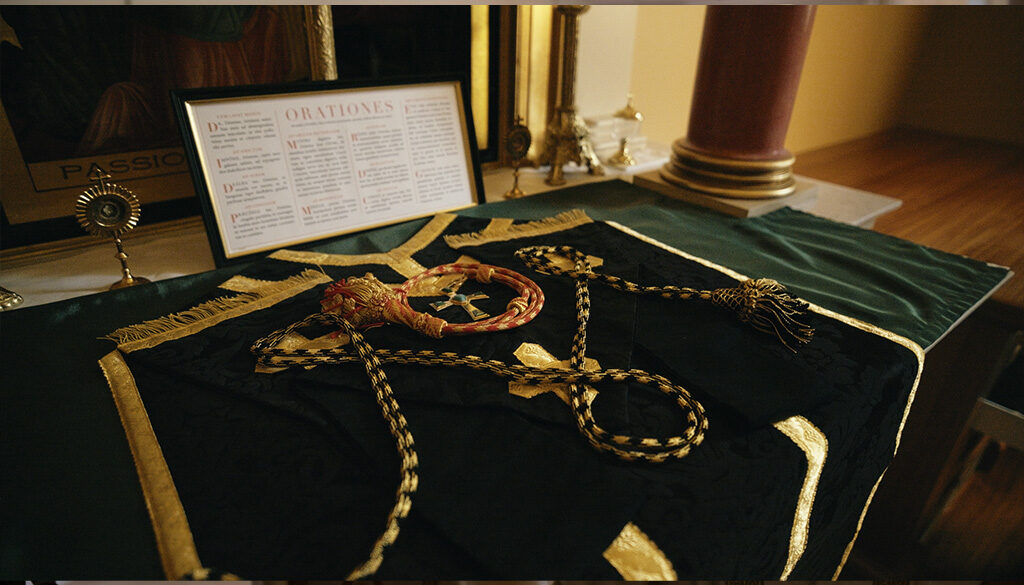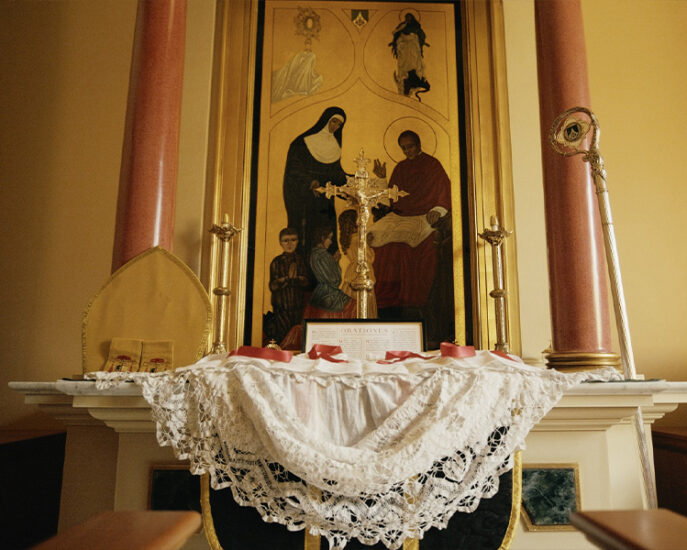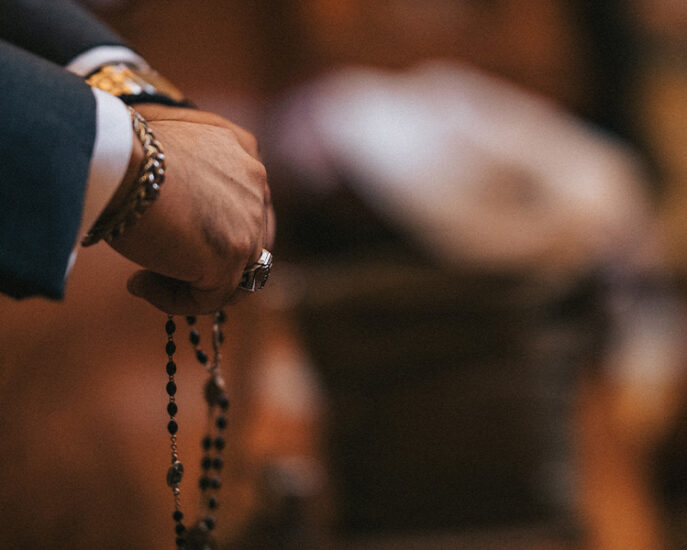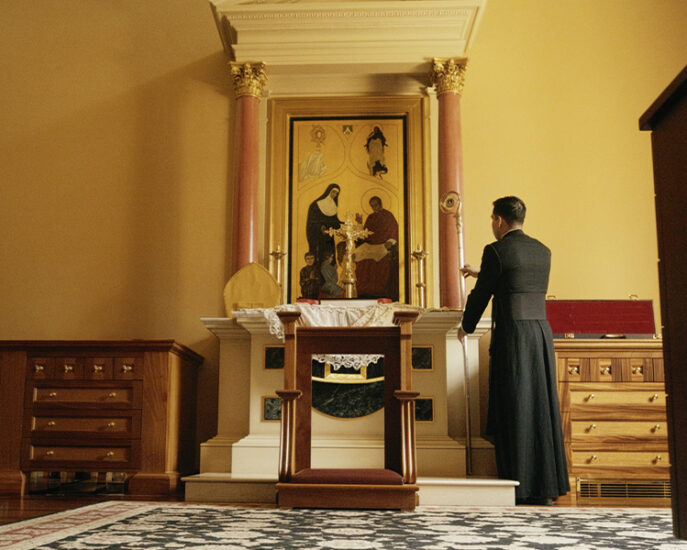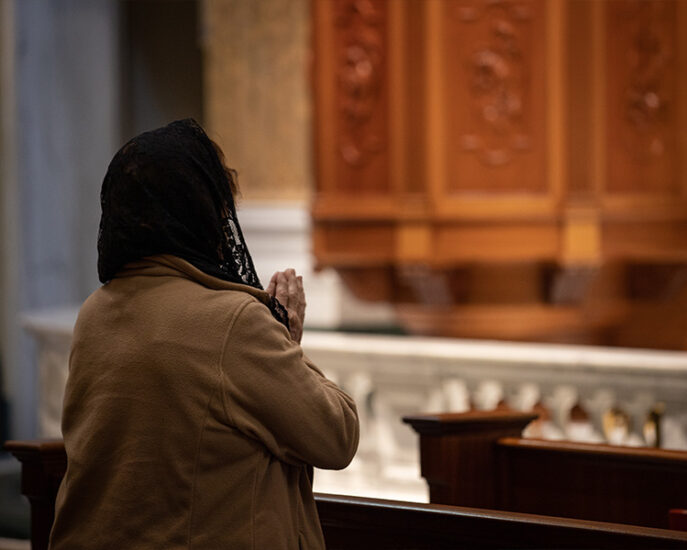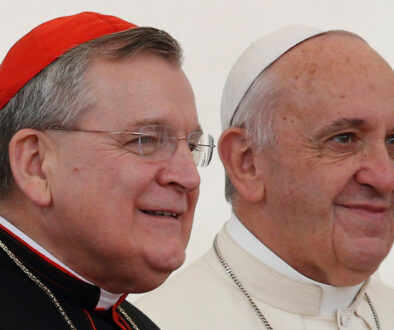All Souls Day 2024
This year, November 2, All Souls’ Day, falls on a Saturday. The Shrine of Our Lady of Guadalupe will be observing the day this year with special solemnity: Cardinal Burke will be offering a Pontifical Requiem Mass, accompanied by an orchestra using the Requiem of Gabriel Fauré.
Pontifical Requiem Mass
A Requiem Mass may be offered for a specific deceased person or group, or it may be, as in this case, generally for the souls in Purgatory. It becomes a Pontifical Requiem Mass when offered by a bishop, which adds a level of dignity and ceremony. Those who have attended previous Solemn Pontifical Masses that Cardinal Burke has offered at the Shrine, as he does regularly, know the grandeur that marks them.
Souls in Purgatory
This beautiful Mass is an especially fitting way to honor the day dedicated to praying for the Church Suffering, the souls in Purgatory, with whom the faithful on earth in the Church Militant share a special bond through the Communion of Saints. “The Holy Mass,” he says, “is the most wonderful representation of this communion that we have with the souls in Purgatory, and an incentive to us to pray daily for the poor souls.”
Purification before Heaven
These souls are saved, but undergoing purification before entering Heaven; Purgatory is thus a place of God’s mercy. “In one sense,” says Cardinal Burke, “one should be very happy to be there because one is on the way to heaven. But on the other hand, it’s a place of suffering. So we have great compassion for our brothers and sisters who have died, who haven’t been able to make satisfaction for their sins, and so we pray for them.” This suffering, as the Catechism emphasizes, is “entirely different from the punishment of the damned” (CCC §1031); these souls are in the state of grace, in God’s friendship, and their pain is not punishment in the ordinary sense but rather healing.
Music for the Requiem Mass
For such an occasion, the music of Gabriel Fauré’s Requiem is also most fitting. The best-known of his large works, it sets texts from the Requiem Mass as well as from other liturgies, in a gentle style focusing on consolation and hope. Although Fauré did not consider himself a religious man, in his Requiem he nonetheless expressed faith, as he said: “Everything I managed to entertain by way of religious illusion I put into my Requiem, which moreover is dominated from beginning to end by a very human feeling of faith in eternal rest.” Elsewhere, more strongly, he told an interviewer, “It has been said that my Requiem does not express the fear of death and someone has called it a lullaby of death. But it is thus that I see death: as a happy deliverance, an aspiration towards happiness above, rather than as a painful experience.” This expression of transcendent hope, rising from the heart of a composer who still felt that hope despite his own lack of belief, is indeed a fitting accompaniment for this Mass, which is also a sign of hope.
The Church Militant
The Pontifical Requiem Mass will be offered for all the souls in Purgatory, but one certainly can, and is encouraged to, come with one’s own prayer intentions for departed loved ones. In particular, All Souls’ Day is an opportunity for all the faithful to help the deceased by gaining a plenary indulgence, which can be done at the Shrine or anywhere the Sacraments are available.

